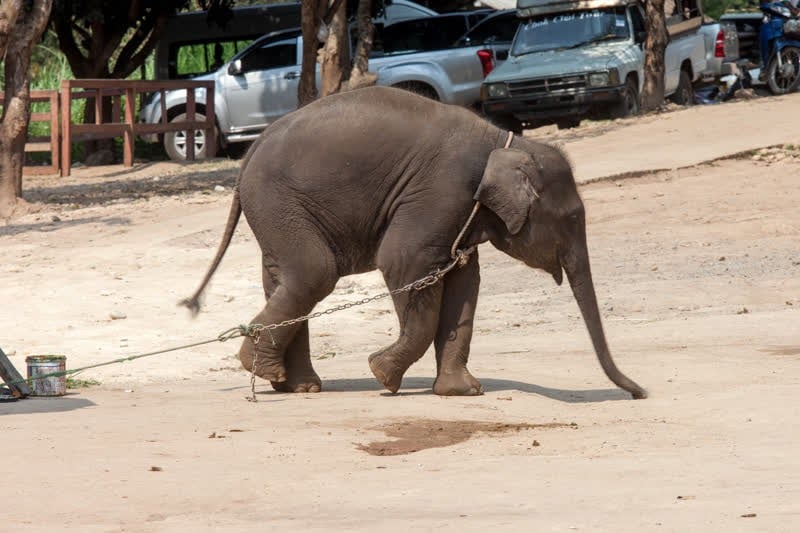
World Animal Protection Presents Thai Government 172K Signatures to Ban Elephant Breeding
Blog
In May 2024, we urged Thailand to end the cruel practice with signatures from individuals in 26 countries.
World Animal Protection has been working to end captive elephant breeding and entertainment for years, and in March we specifically set our sights on Thailand as the government is in a unique position to end captive elephant breeding once and for all.
In March, we launched our global campaign to end captive elephant breeding in Thailand as part of our wider global mission to end wildlife farming worldwide. In addition to the 50,000 Thai signatures we gathered, we expanded the petition globally and set an initial goal of an additional 50,000 signatures. We are proud to say we’ve far surpassed that goal—sending the Thai government 172,244 signatures from individuals living in 26 countries.
During the petition handoff, which occurred on May 27, 2024, World Animal Protection met with the Prime Minister’s Office, Department of Livestock, and Agriculture and Cooperatives Committee while a “drive of change” truck dropped off the signatures.
Maria Poonlertlark, brand ambassador for World Animal Protection Thailand, said in a statement:
“I would like to take this moment to thank all of you who have stood by us and supported us on our mission to protect and to improve the welfare of captive elephants in the Thai tourism industry. Together we sign in solidarity and have a commitment to end animal cruelty. Thank you all so much.”
World Animal Protection’s latest report, Bred For Profit, estimates that at least 5.5 billion animals are bred specifically to be used in exploitative industries each year. Millions of wild animals are sold as pets, for entertainment or tourist attractions, or for luxury items, fashion products, ornaments, or traditional medicine.
Elephants farmed in Thailand are specifically used for tourism, where visitors pay elephant camps to feed, pet, photograph, ride on, wash, or watch elephants perform circus-like shows. According to World Animal Protection’s research, 2,708 elephants—most being captive-bred—lived in 246 camps in the country in 2020, increasing from 2010 by a staggering 134%.
Like all wild animals, captivity cannot provide elephants with the psychological and physical requirements to thrive like they would in the wild. Additionally, equipment such as saddles and restraints cause injuries, while carrying tourists for long periods of time on hard or rough ground causes foot and nail problems. In fact, foot issues are a leading cause of ailments in captive elephants, which can lead to euthanasia.
In addition to the physical ailments of captive elephants, these intelligent animals have been found to have severe psychological trauma. This zoochosis manifests in repetitive movements with no apparent purpose, such as swaying and head bobbing. Bred For Profit reveals that a large number of elephants in Thailand’s captive industry also suffer from complex post-traumatic stress disorder (PTSD).
In order to protect Thailand’s captive elephants, World Animal Protection has been working with elephant camps to help transition them to elephant-friendly venues in addition to public policy changes. Elephants in captivity and their mahouts (caretakers) need to be provided for throughout the remainder of their long lives. Our team in Thailand has been on the ground creating observation-only facilities to ensure that elephants have the highest quality of life possible.
Without your generous support, World Animal Protection wouldn’t have been able to provide the necessary funds and resources to help shift these venues to become better places for elephants and those who care for them alongside changing policies around the world to better protect animals.
Please consider supporting our work to end animal cruelty around the globe.